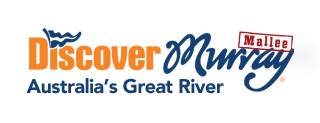
What to do if you hit a kangaroo, possum, wombat or koala
While driving on Australian roads around the Murray River region there are numerous forms of wildlife including kangaroos, possums, koalas, wombats, birds, snakes, lizards and much more. This information is provided by the Native Animal Network.
Your Checkist
1 Stop in a safe place
Take care not to endanger yourself or others by stopping your car suddenly in a dangerous location.
2 Approach with caution
Approach any wild animal with care. Kangaroos particularly are capable of lashing out with their powerful back legs, even if severly injured. Most animals are able to inflict nasty bits and scratches especially when frightened and in pain.
3 If the animal is dead
Check the underbelly for a pouch. Animals such as kangaroos, possums and wombats carry their young in a pouch. A bulge or movement inside a pouch may indicated live young. Gently remove the joey, taking care not to further injure the animal. An animal that has been dead for several hours may still have live young in its pouch.
4 Keep the animal warm
A cold animal which is sick, injured or orphaned will stay cold unless it is heated by some external heat source. Wrapping the animal in a towel or jumper alone will not make it warm. Small animals can be put under the front of a person's jumper. This is a safe, reliable heat source. Alternative emergency heat sources are a hot water bottle or plastic container, filled with warm water or an electric blanket on low or mid setting with the animal wrapped in a towel. The animal must not be placed directly onto the heat source. Take care not to heat the animal too quickly and avoid extreme fluctuations in temperature. Aim for a constant temperature of 30-32 degrees celsius (86-90 degrees Fahrenheit).
5 Keep the animal quiet
Native animals are easily stressed and this alone may be enough to kill the animal. Keep it as quiet as possible away from loud noises and do not allow children to play with it. A joey requires the same care as a premature human body.
6 Seek immediate assistance
An animal will suffer in much the same way as a human. Seek immediate veterinary attention if the animal is injured and even if you wish to care for the animal yourself, seek advice on care and handrearing of orphans.
Short-term Emergency Diets
The following diets should only be used short term, when assistance is delayed in obtaining the proper milk formula.
The correct diet in native animals is essential.
Special milk formulaes, such as Wombaroo, have been specifically developed for native animals and are recommended or use in rearing orphans long term. Do not feed the animal the cows milk which comes from a carton or bottle, as this will cause diarrheoa. Use only tinned or powerded milk, ie. Carnation or Ideal as an emergency milk.
Kangaroos
50% tinned full cream evaporative milk and 50% warm water. It should be fed using a long teat, or a soft piece of fine rubber tubing. An eye dropper or syringe may also be used.
Possum
50% tinned full cream evaporative milk and 50% warm water and sweetened with honey. It should be fed with an eye dropper or syringe may also be used.
Wombat
50% powdered full cream milk, 50% warm water with some baby cereal added. This should be fed in a bottle or on a spoon.
Tell your friends you found this at murrayriver.com.au!
Copyright Discover Murray 2025. This site or any portion of this site must not be reproduced, duplicated, copied, sold, resold, or otherwise exploited for any commercial purpose that is not expressly permitted by DISCOVER MURRAY.






 An Afternoon Of Classical Piano
An Afternoon Of Classical Piano CREEDENCE CLEARWATER COLLECTIVE
CREEDENCE CLEARWATER COLLECTIVE DREAMS FLEETWOOD MAC & STEVIE NICKS SHOW
DREAMS FLEETWOOD MAC & STEVIE NICKS SHOW Native Flower Showcase
Native Flower Showcase